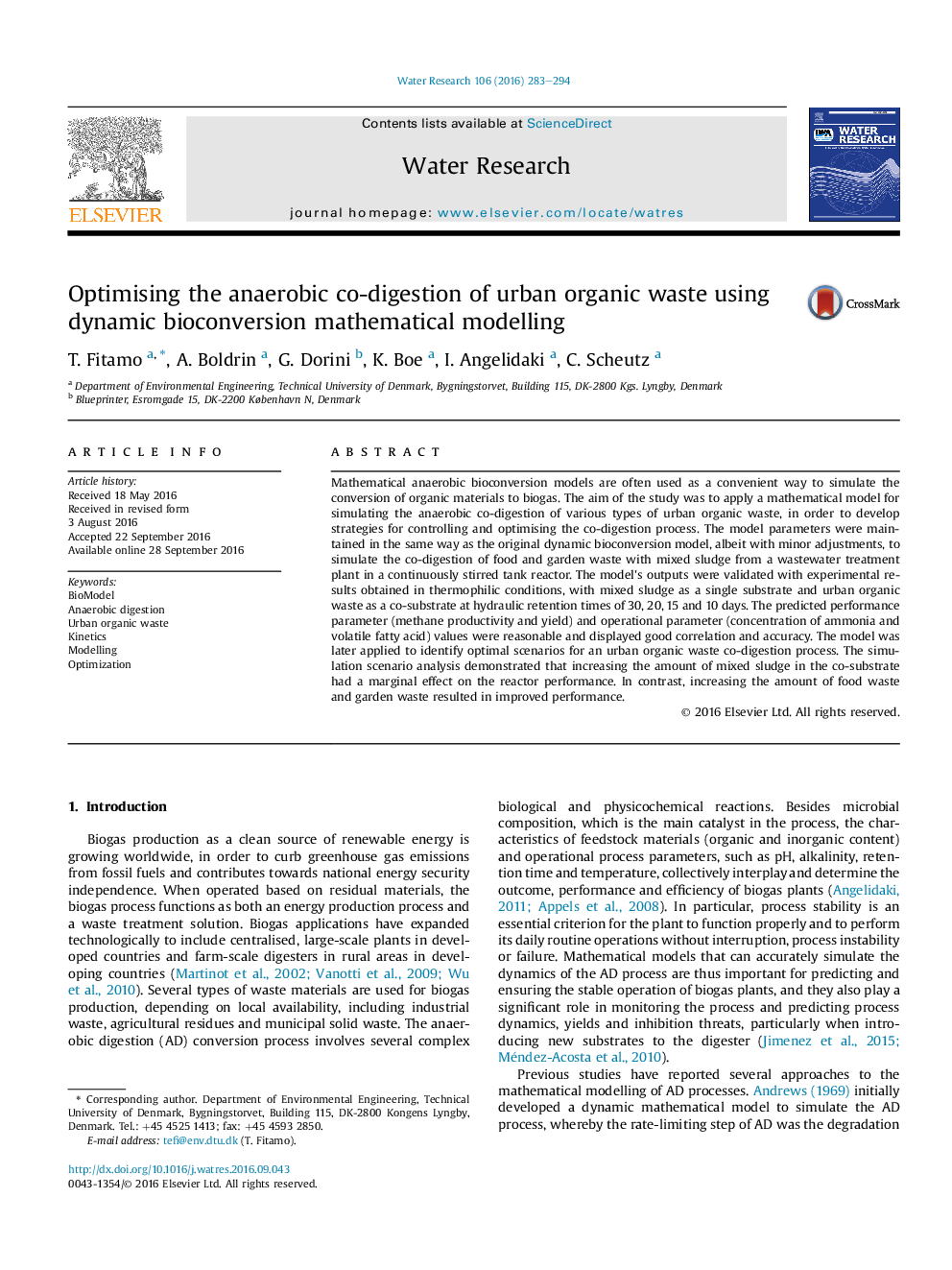| کد مقاله | کد نشریه | سال انتشار | مقاله انگلیسی | نسخه تمام متن |
|---|---|---|---|---|
| 6364215 | 1623062 | 2016 | 12 صفحه PDF | دانلود رایگان |
- Anaerobic co-digestion of urban organic waste was simulated using the BioModel.
- The BioModel provided satisfactory predictions of operation and process parameters.
- The validation of simulation results confirmed good correlation at steady state.
- The amount of mixed sludge had marginal effect on the methane yield and productivity.
- The addition of food and garden waste increased the methane productivity and yield.
Mathematical anaerobic bioconversion models are often used as a convenient way to simulate the conversion of organic materials to biogas. The aim of the study was to apply a mathematical model for simulating the anaerobic co-digestion of various types of urban organic waste, in order to develop strategies for controlling and optimising the co-digestion process. The model parameters were maintained in the same way as the original dynamic bioconversion model, albeit with minor adjustments, to simulate the co-digestion of food and garden waste with mixed sludge from a wastewater treatment plant in a continuously stirred tank reactor. The model's outputs were validated with experimental results obtained in thermophilic conditions, with mixed sludge as a single substrate and urban organic waste as a co-substrate at hydraulic retention times of 30, 20, 15 and 10 days. The predicted performance parameter (methane productivity and yield) and operational parameter (concentration of ammonia and volatile fatty acid) values were reasonable and displayed good correlation and accuracy. The model was later applied to identify optimal scenarios for an urban organic waste co-digestion process. The simulation scenario analysis demonstrated that increasing the amount of mixed sludge in the co-substrate had a marginal effect on the reactor performance. In contrast, increasing the amount of food waste and garden waste resulted in improved performance.
Journal: Water Research - Volume 106, 1 December 2016, Pages 283-294
